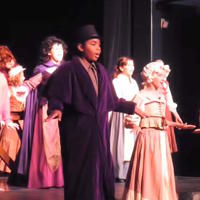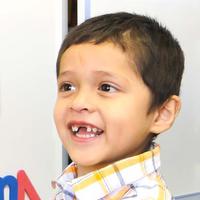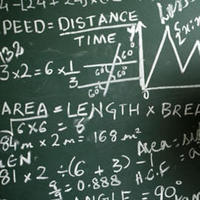Mary Hoag's spaces
All Spaces
Drama

The Drama program provides students with opportunities to gain confidence and build collaboration, public speaking, and social interaction skills as they develop a solid foundation in the theater arts. Through after school activities, students cover the California State Standards for theater education, and learn the basics of the stage, character development, and improvisational and performance skills, as well as to analyze and critique a wide variety of dramatic genres.
English Language Arts

Rigorous State Standards for English Language Arts require students to read, write, speak, listen, and use language effectively as well as develop literacy skills through literature and more complex informational texts that build knowledge in a variety of content areas. Emphasis is placed on answering a range of text-dependent questions that require inferences and evidence based on careful attention to the text. Lessons focus on rigor, critical-thinking, problem-solving, and analytical skills that are necessary for success in college, career, and life.
English Language Development

English Language Development (ELD) Standards are used in tandem with the Common Core State Standards to give our English Learners (ELs) what they need to acquire language and gain access to grade-level standards. The California Department of Education requires that ELs receive explicit ELD instruction (Designated/Dedicated ELD Instruction), grouped by proficiency level. ELs also need access to grade-level standards. CUSD teachers use research-based instructional strategies proven to be effective in helping ELs meet grade-level content.
Family Involvement
Research shows that family engagement promotes student success. Students with involved parents are more likely to attend school regularly, pass their classes, earn higher grades, have better social skills, and be college- and career-ready.
There are many ways for families to be involved and support their CSI student at home and at school. Check with your child's teacher or the school office staff for ideas.
Grade Levels
New ideas. New concepts. New skills.
School is where students begin to explore core subjects and discover new interests and skills that they may develop later in middle school. Our teachers provide strong core academic instruction through their broad knowledge of the subject matter, standards-based curriculum, and creative lesson design.
Gymnasium
This is one of the places where our students build a foundation of good sportsmanship and good health during the school day and compete in team sports after school. Community groups also rent our gym for their team competitions. To find out about facility rentals, go to: https://www.campbellusd.org/facilityuse,
Kindergarten

Kindergarten is for children who will be five years old on or before September 1. Instruction in kindergarten is focused on developing foundational skills that prepare students for success in all content areas and sets the foundation for building skills that lead to success throughout the child’s school years. Students build skills in literacy and oral language comprehension, vocabulary, alphabet knowledge, phonological awareness, and print knowledge.
Mathematics

Mathematics in today's classrooms require our students to do much more than memorize math facts and formulas. The State Standards demand that students apply their knowledge of mathematical procedures to complex problems where they must explain and justify their reasoning. Our curriculum supports students in meeting these rigorous expectations.
Multi-Use Room
This room is a hub of activity for the school and the community. By day it is where students gather for lunch, sports, band practice, educational assemblies and more. After school hours, it is a-buzz with school and community activities such as recreational and team sports, community meetings and school drama productions.
Physical Education

Students spend a lot of time in classrooms at school but getting outside and being active is just as important. Physical Education is mandated by the State of California. Students in elementary school are required to have 200 minutes of Physical Education every 10 days. Physical education is a combination of structured activities and lessons on nutrition and healthy living. Depending on the teacher or the provider, students participate in a variety of sports, dancing, calisthenics, and other activities to get them up and moving.
